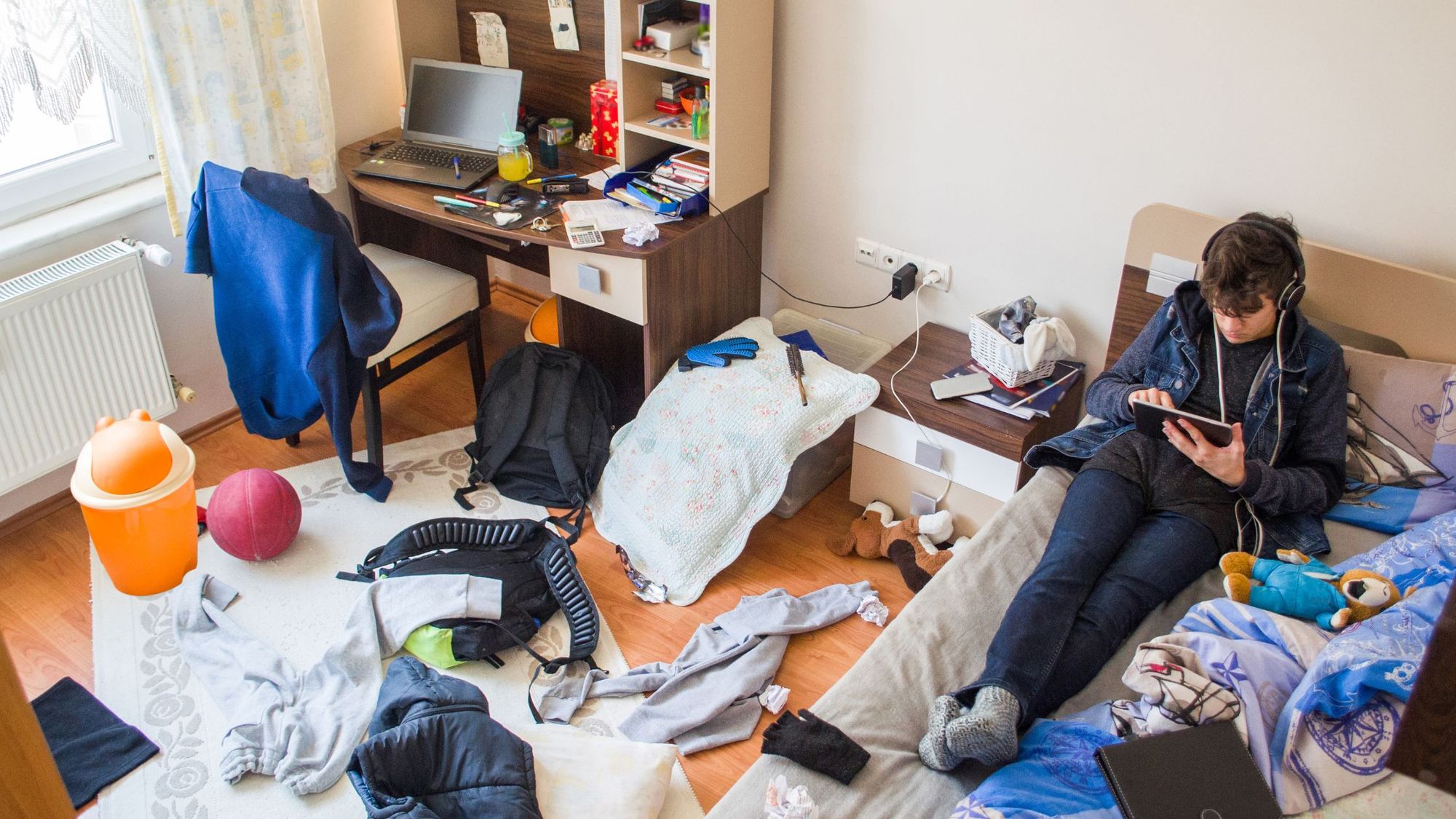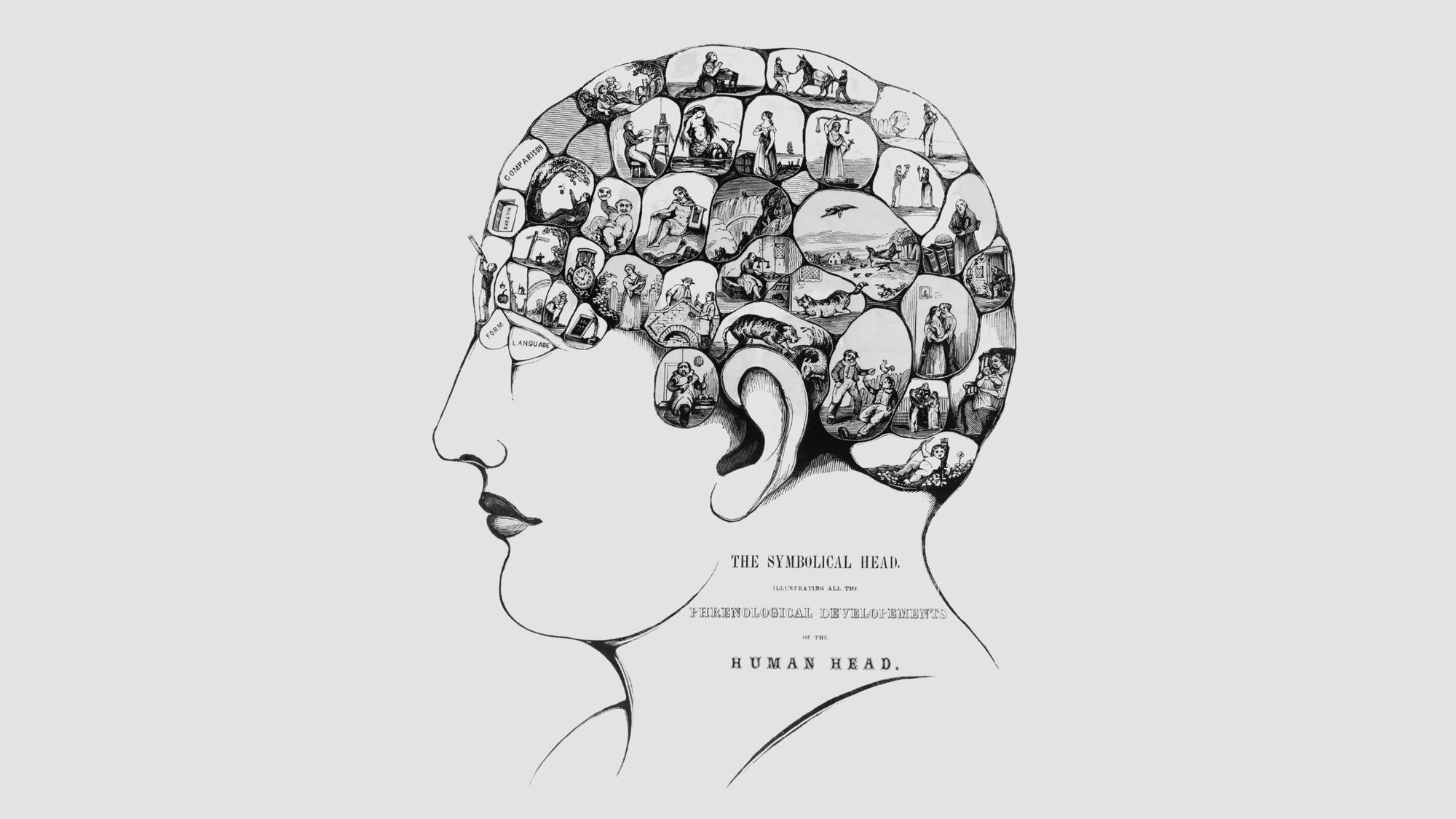
Many people who seem to be chronically messy with untidy, cluttered and disorganized homes are currently thinking about what causes messiness for them, and if this is a trait they might be able to overcome in the new year.
Some people have already started writing out their New Year’s Resolutions, and chronically messy individuals might have “Change my messy habits and become a tidier person” at the top of their list of resolutions.
We can all be a little messy sometimes, but some people are so messy all the time that they swear it must be ‘genetic’.
While many of us would rather spend our days pursuing our hobbies, watching TV or spending time with loved ones than tidying our home or cleaning, a lot of people are great at being disciplined about tidying up.
If it feels as though every aspect of your life is constantly in disarray, your chronic messiness could be a symptom of something more complex.
Excessive messiness isn’t always just a result of laziness. It may be a sign of mental health struggles making it harder for you to focus on certain tasks.
Your messiness could also be linked to your personality traits, or various underlying conditions. Unfortunately, messiness can also lead to a range of other issues. Studies have shown that clutter sometimes exacerbates stress, anxiety, and depression. It can also make it harder to focus on crucial tasks.
Discovering the root cause of your messiness could help you to address the issue, and reap the benefits of a cleaner, tidier environment to live in.
If you’re wondering what causes messiness, below are 9 possible truths behind your state of disarray:

1. Depression
One of the top answers to the question, What causes messiness? may be depression. Messiness and depression frequently go hand-in-hand. A study in 2016 found cluttered homes are common among depressed patients. Some individuals even start hoarding items they don’t need, because they struggle to let go of possessions when feeling sad.
Depression can contribute to messiness in a variety of ways. People who suffer from depression often struggle to concentrate and commit to tasks for long periods of time. You may feel fatigued more quickly than usual, and struggle to find motivation.
In fact, a lack of self-motivation is one of the top symptoms of clinical depression.
Some people with depression also feel overwhelmed by smaller tasks, because they struggle to process their emotions.
If you’re suffering from depression, the best thing you can do is seek help from a registered clinical counselor. Look for a qualified therapist to assist you in talking through your issues and finding new coping mechanisms. If your messiness is exacerbating your depression, try to commit to small bouts of tidying when you have the most energy. Focus on ten minutes of work at a time to begin with, before gradually ramping up.
If you simply can’t get your head around the idea of tidying, it may be worth asking for some help. Tidying with a friend or family member will reduce your workload, and also give you someone to speak to about your feelings.

2. Certain Personality Traits
When examining what causes messiness, it’s worth considering the personality of each person. Some people are predisposed to be messier than others as a result of their genetic traits and personality. We all have different perceptions of how messy is too messy. Some people won’t feel comfortable until every part of their home and office is pristine. Others can happily live in a slightly messy home without feeling any negative repercussions.
Studies indicate that certain types of people, such as those who are considered more creative and imaginative, tend to be messier. If your mind is constantly active, coming up with new ideas and concepts, then you’re less likely to be distracted by mess. You may not notice how messy your home or office has become until someone else points it out to you.
If your personality traits contribute to your messiness, it can be more difficult to transform into a tidier person. The best option is to practice mindfulness. Try to be more aware of your surroundings, and commit to giving everything in your home or office its own dedicated space. Don’t let things pile up around you, and pay attention when someone mentions your space could be tidier.
If it’s not within your personality to be naturally tidy, set daily phone reminders to remember to do a daily tidy-up, as tidying up daily can reduce the likelihood of an overwhelming mess building up.
3. Excessive Stress
Stress isn’t always a bad thing. It can sometimes keep us motivated and focused, and may even help to eliminate issues like procrastination. Unfortunately, excessive stress can often lead to significant issues, including an inability to manage simple tasks, from cleaning, to caring for our own hygiene.
If you’re already feeling extremely stressed as a result of problems at home or at work, you may be too overwhelmed by your existing worries to focus on tidying. It’s also worth noting getting rid of things, even items we no longer need, can be a stressful and emotional process. Sorting through items you may need to donate or throw away can seem like a hefty challenge when you’re stressed.
If you’re wondering what causes messiness in your home, and you know you’re dealing with stress, you may have your answer. The simplest way to deal with this issue is to find ways to reduce your stress. Commit a portion of your schedule every day to relaxation. You can try meditation, yoga, or simply listening to some soothing music while you take a bath or sit in a cozy place.
Try to avoid allowing messiness to become a source of stress, by consistently putting items back in their assigned place after you use them, rather than just allowing clutter to build up.
4. ADHD
When it comes to understanding what causes messiness, ADHD is a common culprit. One report found many children with ADHD also had working memory deficits.
This meant they were less able to focus on short-term tasks. If you’re frequently distracted, it’s much harder to commit to cleaning a room or removing clutter. You may find it harder to plan and follow through on actions to achieve specific goals.
ADHD may also prompt you to start various tasks, but leave them uncompleted. This could mean you have half-finished chores littered around your home. You may start washing clothes, then leave them in a pile, unfolded for weeks at a time.
People with ADHD aren’t always messy, but there is a higher chance you’ll end up with a disorganized and cluttered space if you have this mental health condition. One good option could be to create a to-do list each day so you can check off the items you need to do as you go, and follow a more consistent schedule. It may also be helpful to seek help from a doctor, as they might be able to prescribe medications which help you keep on top of your condition.
5. Executive Dysfunction
Executive functioning skills are important to virtually every aspect of our lives. They include a range of capabilities, including planning and organization, managing mental focus, processing information, and the ability to deal with emotions.
If you have impaired executive functioning, you may find it harder to achieve all kinds of goals, including keeping your space clean and tidy. For instance, if you have a hard time managing your schedule, you may find you never have enough time to really focus on cleaning.
If you struggle with maintaining focus, you may begin tasks that you never complete, or be tempted to procrastinate when you’re not particularly engaged by a task. The best way to deal with executive functioning disorders is to seek assistance from a professional. At times, executive dysfunction can be a sign of a deeper core problem related to neurological and mental health.
Therapists and behavioral specialists can teach you how to overcome your executive dysfunction with careful planning and structure.
6. Bipolar Disorder
Difficulty with messiness isn’t typically considered a formal symptom of any kind of mood disorder. However, for people with bipolar disorder, it can be a lot more difficult to maintain a clean and tidy space. Mood episodes, ranging from mania to depression, impair your energy levels, motivation, and ability to function.
As mentioned above, plenty of scientists exploring the questions surrounding what causes messiness have found links between depressive episodes and clutter. If you’re suffering with depression, you may find it harder to focus on regular activities, or feel more fatigued than usual.
However, episodes of mania can also contribute to messiness. When your thoughts are racing and disorganized, it’s harder to focus on completing tasks. You may experience low impulse control, which means you’re more likely to procrastinate and do other tasks you find more appealing, even when you’ve told yourself you’re going to devote some of your schedule to tidying.
People with bipolar disorder should always seek assistance from a medical professional to help manage the changes in their mood. It may also be helpful to focus on tidying during times when you feel emotionally stable, so you don’t have to push yourself as hard during difficult moments.
7. Compulsive Disorders (Hoarding)
One common answer to the question of what causes messiness is compulsive disorders. Hoarding disorders, which are characterized by the compulsion to purchase, hold onto, avoid throwing away, or store large volumes of physical items can cause extreme messiness. The more items you have to sort through, the less likely it is you’ll be able to organize your space or have it looking clean.
A cluttered home or office doesn’t necessarily mean you have a hoarding disorder. Instead, these issues are often characterized by an overwhelming, emotional need to collect certain items. In some cases, you may find you start to fill your home with items you no longer need, because you feel unable to let go of anything you’ve previously purchased.
True hoarding disorders require the support of a mental health expert. However, you may be able to stop an issue with clutter from going too far by committing to regular organization techniques. Sort through your belongings on a regular basis and ask yourself what you really need to keep. If you haven’t used an item in the last two to three months, it’s probably okay to get rid of it.
Consider hiring a home organizer, which is even better than hiring a cleaner.
8. General Laziness
When it comes to figuring out what causes messiness, general laziness is a common culprit. Laziness is essentially an unwillingness to expend energy. You may have the physical and mental capacity to clean your home and get rid of clutter, but you don’t have the motivation to get to work. One of the most common reasons for messiness is a simple lack of interest in tidying.
It’s common to find yourself actively avoiding tasks you don’t particularly enjoy doing, such as washing the windows or cleaning your office. However, the more you allow laziness to take control of your activities, the more the problem can evolve. The longer you grant yourself permission to be lazy, the more the messiness can build up, until you’re too overwhelmed by the task to dive in.
A good way to address this issue is to find ways of motivating yourself. Start by breaking your tasks down into smaller chunks. For instance, rather than trying to clean the entire house at once, focus on picking up trash and sweeping the floors in just one room.
Make the act of cleaning more appealing by listening to your favorite music or podcast while you tidy up. Work alongside your family members on big tasks and enjoy some meaningful bonding moments as you tackle each chore.
Check out these further tips on how to stop being messy.
9. Lack of Self-Love
If we’re going to dig deep when it comes to deciphering what causes messiness, it could be due to a lack of self-love.
Have you ever noticed that you were a tidier person when you had a roommate, or when you were having a guest over?
Are you less tidy when you live alone? This could be a sign that the root of your messiness is a self-love issue. You seem to be able to clean for other people, but not for yourself. This shows that you don’t prioritize taking care of yourself or your home as much as you should.
Low self-worth or issues with self-love can often be worked through with a therapist. It certainly won’t help your level of self-love to live in filth.
What Causes Messiness? There are Various Answers
So, what have we learned about what causes messiness? Sometimes the answer is as simple as general laziness. However, there are also various other conditions which can contribute to a messy home or space. You may find your messiness is a result of your depression, lack of self-love, low energy, feelings of stress, or anxiety. Messiness can also be a sign of an underlying problem such as ADHD or bipolar disorder.
In some cases, messiness can also be exacerbated by physical conditions, from chronic fatigue to fibromyalgia. After all, if you feel unwell physically, you’re less likely to want to focus on tidying.
If you’re wondering what factors might be contributing to your messiness, it’s worth checking out your CircleDNA report for some critical DNA insights into your personality and behavior traits. This DNA test can even tell you if you’re genetically more likely to have ADHD. You may discover there’s a genetic root cause to your untidy habits that you can overcome with the right help and resources.
Remember that there are countless benefits of committing to being tidier and living in a cleaner and more organized space. You’ll be less embarrassed to have company over, you’ll have more pride in your home, you’ll feel less anxiety at home, you’ll enjoy your space more, and you’ll certainly be less likely to lose or misplace important items. There are so many reasons why it would benefit you to overcome your messy habits, so it’s a fantastic New Year’s Resolution to have on your list.
References:
- Science Direct: Psychological perceptions matter: Developing the reactions to the physical work environment scale.https://www.sciencedirect.com/science/article/abs/pii/S0360132318307157
- Science Direct: Hoarding and depression: The mediating role of perceived burdensomeness. https://www.sciencedirect.com/science/article/abs/pii/S0022395616301893?via%3Dihub
- WOMR: Finally Proven by Science: Messy People Are More Creative (but didn’t you know it all along?). https://womr.org/blogs/matters-of-opinion/it-is-finally-proven-messy-people-are-more-creative-but-didnt-you-know-it-all-along/
- NCBI: Working Memory and Organizational Skills Problems in ADHD
https://www.ncbi.nlm.nih.gov/pmc/articles/PMC5729117/






Comments are closed.